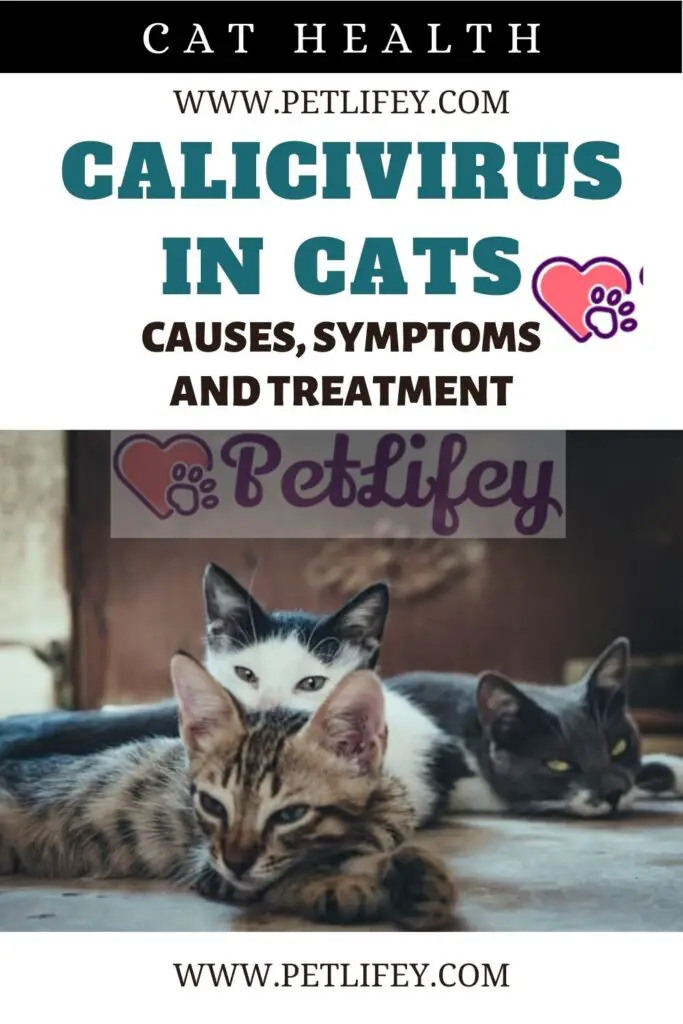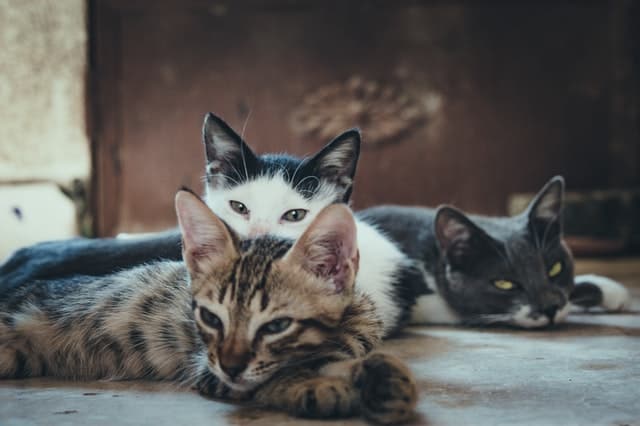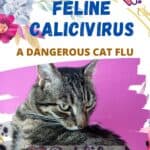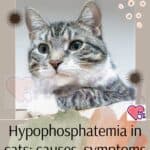
Feline caliciviruses are viruses that are widespread in cats. Learn about the different symptoms, treatments and prevention methods against calicivirus in cats.
This disease is very contagious and therefore has more or less severe forms, ranging from the asymptomatic to the chronic form, up to some cases of hyper-virulent calicivirosis.
Calicivirosis is a viral disease caused by calicivirus, also involved in the common cat cold. There are several variants of this virus and the symptoms differ depending on the viral strain found to be guilty.
Symptoms
The intensity of the symptoms depends on the potency of the viral strain, but also on the general health of the cat at the time.
A cat with a weaker immune system (young kitten, pregnant female, cat with another disease) may have more severe symptoms than a healthy adult cat.
The most common symptoms are:
- a chronic gingivitis;
- upper respiratory tract symptoms, conjunctivitis and rhinitis or, in rare cases, signs of pneumonia, cough in cats;
- ulcers of the tongue or mouth.
Calicivirus diagnosis in cats
Diagnosis is primarily based on a detailed clinical examination of the cat. The vet also looks for some risk factors that could explain the infection and then evaluates several factors.
To be sure that the calicivirus is responsible for the symptoms, the vet can take a sample of eye or nasal secretions.
To do this, he uses a sterile swab, which is then sent to the laboratory for analysis. The laboratory performs a PCR which allows to highlight the DNA of the offending virus.
Treatments and prevention of calicivirosis
Unfortunately, there is currently no specific effective treatment for calicivirosis. The proposed treatments are therefore essentially based on the management of symptoms and pain.
Antibiotics and anti-inflammatories will be given to the sick cat to slow the progression of symptoms (antiviral treatment) and relieve them (with eye ointment, inhalations, care of the cat’s mouth and teeth).
Your veterinarian may consider resizing and extracting the infected teeth, if necessary. For the sick animal that no longer has the desire and instinct to feed, the idea of rehydrating it with tubes and washes will be considered.
If treated in time, antibiotic therapy is generally effective in preventing the onset of secondary infections that can further weaken the animal and its immune system. Furthermore, the symptoms of calicivirosis can disappear in a few days.
Should calicivirosis occur in the much more violent form, an antiviral injection based on interferons can be used to slow the replication of the virus in the body.
However, calicivirosis remains a chronic and incurable disease, so it is essential to protect the domestic cat from the age of 8 weeks with the typhoid / coryza vaccine, which is also effective against calicivirosis.
Natural medicine against calicivirosis
To reduce the symptoms of calicivirosis as soon as the first signs appear, you can resort to aromatherapy for cats, with which you get good results. These natural methods can help limit the chronic presence of the infection and a probable subsequent acute form.
However, these methods must be practiced with care and diligence to be effective. As in many chronic conditions, alternative therapies are recommended to try to alleviate the hellish circle of persistent symptoms in addition to the stress felt by the cat.
Calicivirus transmission in cats

Calicivirus itself is a contagious virus. Its transmission can be done:
- By direct contact with a sick cat or an asymptomatic cat carrying the virus. The virus is present in the cat’s nasal and eye secretions and can also be transmitted during sneezing.
- By indirect contact, during the contamination of the environment by a sick cat: cage, cat litter box, bowls or clothes of the owner.
Since it can be transmitted even during a brief contact with a contaminated object, it is therefore recommended to vaccinate all cats, including those who do not go out as it is unfortunately possible to report the virus at home if we meet a sick cat.
Vaccination of calicivirosis in cats
This is the “typhoid / coryza” vaccine offered by the vet and protects your pet from feline panleukopenia virus, feline rhinotracheitis and calicivirus.
The calicivirus vaccine is a so-called essential vaccine in cats. It is recommended that all cats be vaccinated, including those that do not leave the house.






